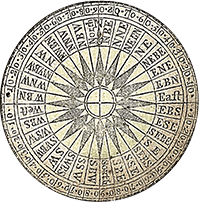I often post about the frontier and frontier warfare between Native Americans and frontiersmen. When frontiersmen were killed by Native Americans, it was massacre, but Indian deaths were seldom referred to in the same manner. Native Americans are often referred to as “murderous savages”.
Recently I shared information concerning the Shawnee religion and the Shawnee alphabet. I have personal interest in Shawnee and Delaware history, as a paternal ancestor is listed in one of Richard Pangburn’s marvelous “Indian Blood” books.
For me, understanding early Native American culture is sometimes difficult. In the case of frontier history, not every tongue or tribe had a written language and it is difficult to apply 21st century ethics to 18th or 19th century situations. As I learn more about Eastern Woodland Indians, I will be sharing it here. Today I am sharing the writings of CK Wilbur concerning “Adulthood and Matrimony”.
“Prospective husbands in the Miami, Fox and Kickapoo tribes started courtship on a romantic note. In the dark of night, the young man entered the young woman’s lodge with a birch bark torch. If she smiled when asked him to leave, she was accepting his proposal (and then he might stay the night). The parents may have arranged the meeting but in any event must approve of the upcoming marriage. An exchange of gifts gave their consent.
In contrast, an Illinois young man could not accept the responsibility of marriage until he had proved himself on the hunt and on several war parties. Chippewa mothers and grandmothers kept close eyes on their maidens. The couple could only visit under their watchful eyes. Marriage was then arranged by the man’s family. Monogamy was the general rule, but men of importance might have two (and rarely three) wives. Divorce among the Chippewa and other central Algonquian tribes was simple enough. All the woman need do was to return to lodge of her parents. Simple, but not easily done, for divorce reflected on the judgment of the parents who gave their approval for marriage.”
Source:
Eastern Woodland Indians by CK Wilbur, 1995
Welcome to “Sharing the Stories of History with Tim Mann”!
Meet Timothy A. Mann, a passionate historian born and raised in the heart of Shelby County, Ohio where Tim’s roots run deep in the rich soil of American history. As the author of articles and books, including “Frontier Miscellany Concerning the Miami County Ohio Militia,” “Colonel John Mann, His Kith and Kin,” and “Frontier Militia – The War of 1812,” Tim’s literary contributions have enlightened and inspired countless history enthusiasts.






